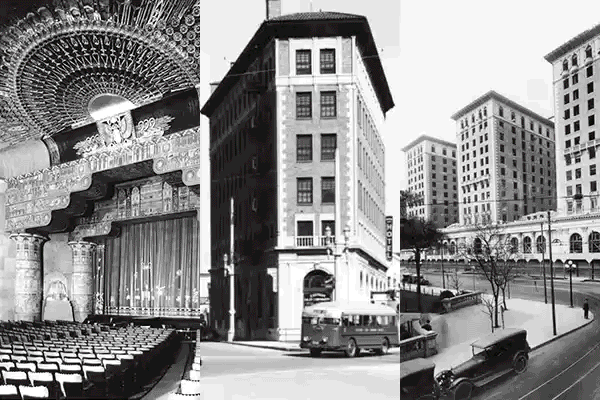Hotel renovation strikes sour note with some L.A. mariachis
- Share via
Some of the musicians had lived in the old Boyle Hotel for decades. Others were like migrating birds.
They roosted there in the summer season of weddings, quinceañeras and backyard parties. Come winter, they packed their violins, accordions and trumpets and headed to their villages in Mexico. In spring, they came north again.
This year, they can’t return to the Boyle Hotel. It’s shuttered, and all of the mariachis have scattered.
Months ago, the run-down building that houses the musicians who gather at Mariachi Plaza on the eastern edge of downtown was vacated so it could be remodeled. The renovated space will include 51 affordable studios and apartments for mariachis and local families, along with two community rooms and a mariachi center with a break area and rehearsal space.
After the structure is completed in the summer of 2012, the trick will be getting the musicians back in.
There will be a stricter application process, along with leases and new rules: only two tenants per studio, not three or four as before. Some units will still rent for $450, but others will cost as much as $600.
“We’re going to have to go out there and use our community organizing tactics to get them to come back to the building that’s traditionally been their home,” said Maria Cabildo, president of the East Los Angeles Community Corp., the nonprofit handling the project.
The Boyle Heights group, known for building and renovating affordable housing, bought the 122-year-old building for $3.1 million in 2007. It wanted to protect tenants from being pushed out by the kind of gentrification then being seen in downtown L.A.
ELAC promised the musicians studios with private bathrooms and kitchens, a fourth-floor community room overlooking Mariachi Plaza and, at street level, a courtyard and some shops.
But then the economy took a dive. And many of the mariachis said they didn’t want the change.
They lived in slum-like surroundings — with rodents, cobwebs and foul-smelling communal bathrooms — but they worried the renovation would raise rents. They’d also been through a bitter legal battle with the previous owner over living conditions and weren’t sure ELAC could ever deliver.
Eventually, after the lawsuit against the previous owner was settled and after much door-knocking and many community meetings, the nonprofit won over many of the musicians.
“It was really very frustrating, but this was such an important project for us,” said Cabildo of the $24.6-million renovation, paid for with federal, state and city loans. “We put everything into it, and once our relationship improved, the project took off.”
Last spring, the mariachis packed their bags and moved out of the hotel. Each received relocation money — $18,000 to $24,000 on average — as required by federal law.
Some rented units along the mariachi corridor on Boyle Avenue. Others returned to Mexico.
Roberto Olmos Cruz, an accordion player who had lived in the Boyle Hotel for 10 years, and his friend Juan Urias, a 74-year-old violin player who had been there on and off since 1987, rented a room in a big old Victorian house on a nearby hill that the mariachis like to call the “The Mansion of Dracula.”
Most of their relocation money was spent helping relatives in Mexico. Last month, the house they had moved into burned down. They were among 18 mariachis who lost their instruments and embroidered costumes in the fire.
“It was a year of surprises,” said Olmos Cruz, 63. “One day we have a few thousand dollars to get by and the next we have nothing but the clothes on our back.”
Olmos Cruz and Urias have since found a new place to live near Mariachi Plaza. As they sat by the stone kiosk on a recent evening, about a dozen balladeers milled about as usual, searching for gigs.
But none had ever lived in the Boyle Hotel.
“Those guys are gone,” Urias said. “You’re not going to see them around here anymore.”
The former hotel, meanwhile, was dark and silent — no trumpets blaring or guitars strumming or men rushing down its narrow hallways, hollering: “I need an accordion player!” “I need a vocalist!”
The tiny rooms in which the musicians used to congregate are now stripped-down skeletons of crumbling plaster and lath. The kitchens and bathrooms they once illegally added have been torn out to make room for new ones.
Olmos Cruz and Urias have a hard time imagining how the place will turn out once it’s finished.
They said they look forward to the changes but don’t know if they will ever move back in.
“If the rent is fair, if they treat us well,” Urias said, “we’ll think about it.”
More to Read
Sign up for Essential California
The most important California stories and recommendations in your inbox every morning.
You may occasionally receive promotional content from the Los Angeles Times.











